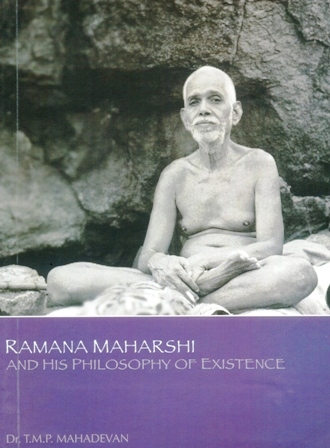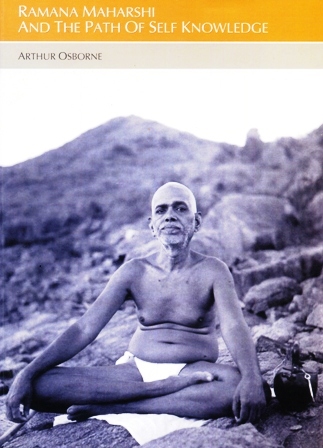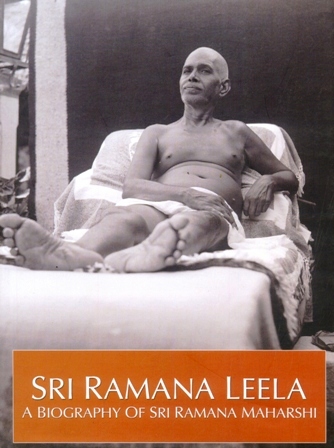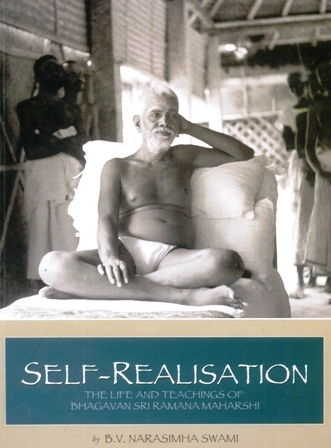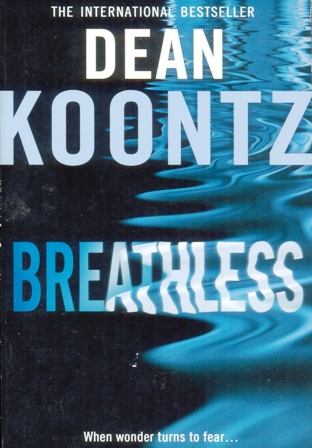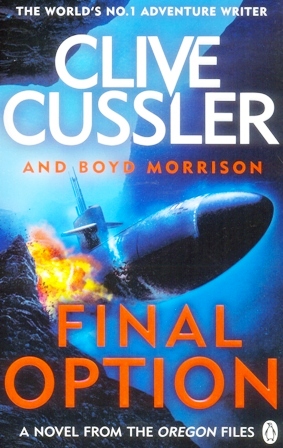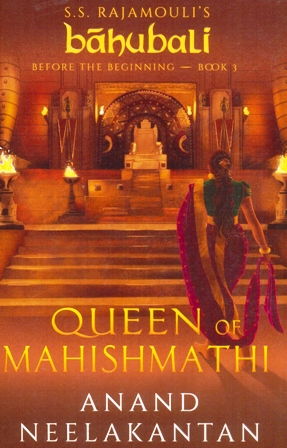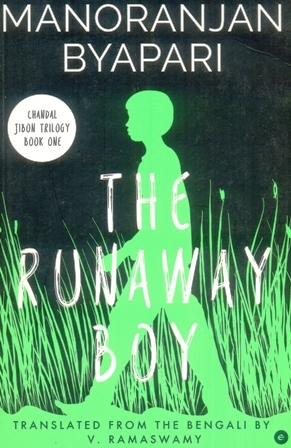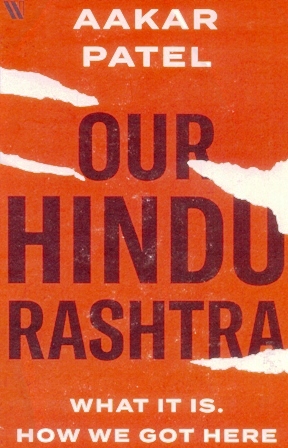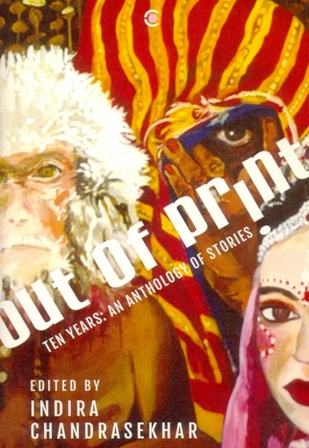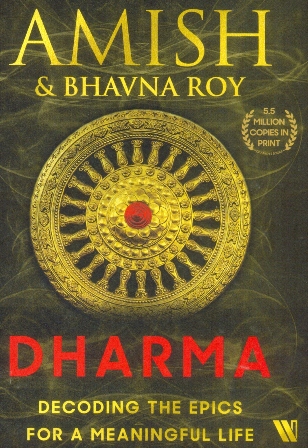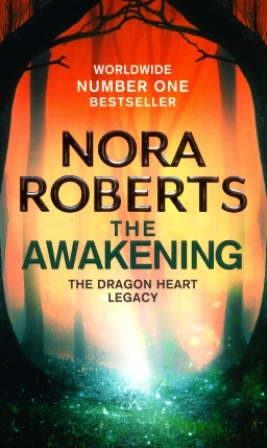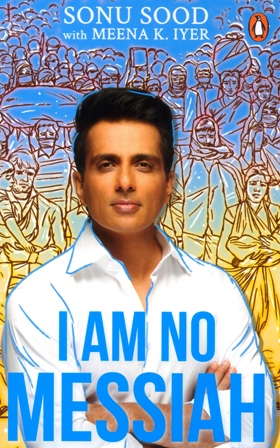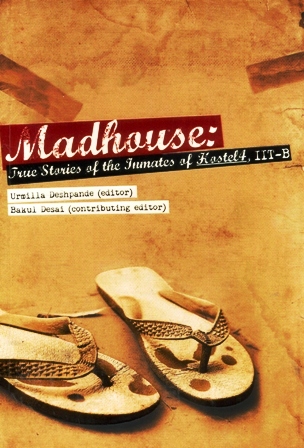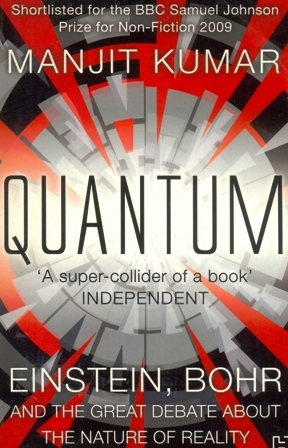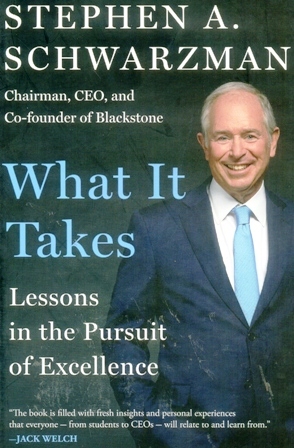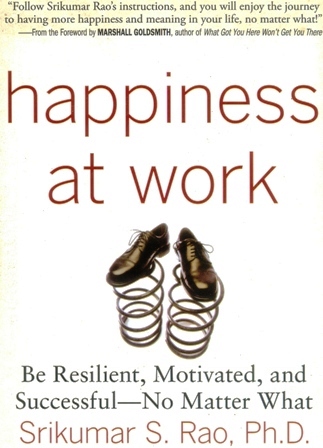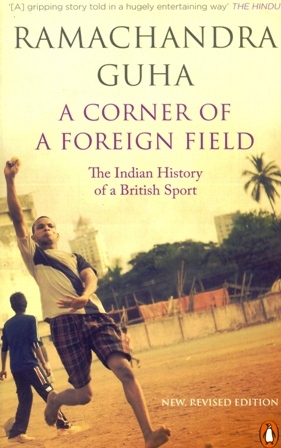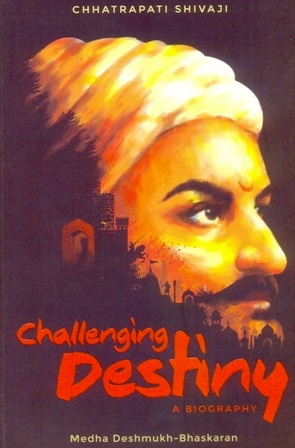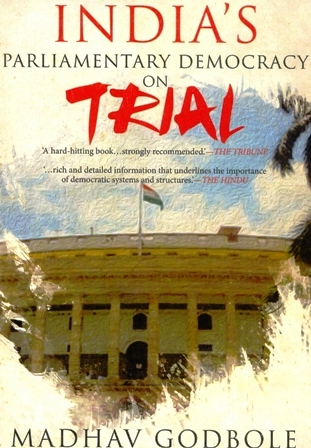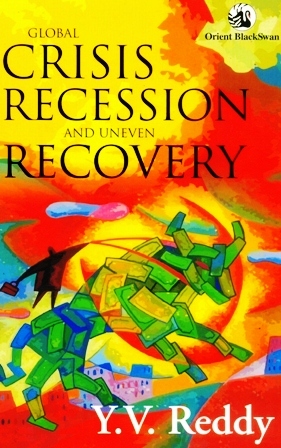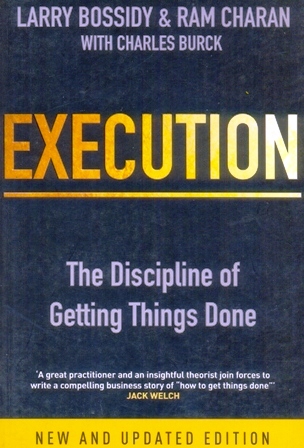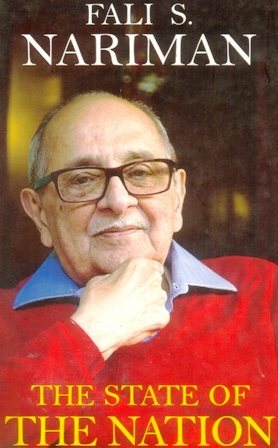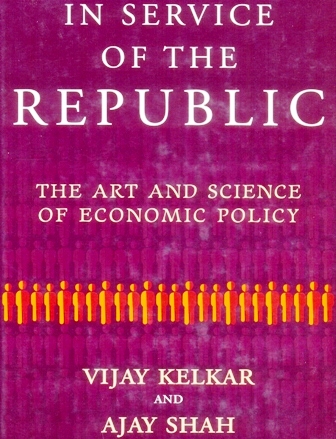-
Ramana Maharshi And His Philosophy Of Existence
"Under whatever name we worship It,It leads us on to knowledge of the nameless,formless Absolute. Yet to see one's Self in the Absolute,to subside into it and be one with it,this is the true knowledge of the truth." This is a typical translation by the Author of the Tamil original verse,Ulladu narpadu (Forty Verses of Existence) authored by Sri Ramana Maharshi.Sri Ramana hardly contributed any writings and probably this is the only major work.His Philosophy and Spirituality were more expounded by clearing the doubts of devotees by way of Questions and Answers.
-
Ramana Maharshi And The Path Of Self Knowledge
The author has packed into this small volume all of the essential information relating to the teachings of Bhagavan Sri Ramana Maharshi(1879-1950),the great Indian sage. The life of Sri Ramana Mahrshi fills us us with wonder.As a teenager,hardly seventeen,he realised the self through a spontaneous act of Self-enquiry without any conscious effort on his part,or any trainining imparted by a teacher. He left his home in 1896,came to Arunachala (Tiruvannamalai)where he lived as an all-renouncing sage,in a state of continuous self-absorption for a period of fifty four years until his mahanirvana in 1950. The instructions given by Sri Raman to his early devotees are all portrayed by the author.They have a lasting value.Also included are Paul Brunton's experiences. Sri Maharshi's message is that self-knowledge is not something to be acquired afresh.It is only becoming aware of one's own natural state of Pure Being,through self-enquiry. The spirit of this simple but profound message has been captured by the author in his presentation.
-
Sri Ramana Leela A Biography Of Bhagavan Sri Raman
The words of this sage,Sri Ramana Maharshi still flame out in my memory like beacon lights."I pluck golden fruit from rare meetings with wise men" wrote Emerson in his diary,and it is certain that I plucked whole basketfuls during my talks with Sri Ramana Maharshi.Our best philosophers of Europe could not hold a candle to him.. --Paul Brunton This introduction by Paul Brunton should induce any seeker to understand Bhagavan Sri Ramana Maharshi. This book was first published in Telugu language in the year 1936.This was one of the three biographies of Sri Bhagavan published during his bodily life time.Perused and corrected prsonally by the great sage himself this book is a must for every follower of Sri Ramana Maharshi.
-
Breathless
The stunning new thriller from the bestselling author of Velocity and Relentless. In the Colorado mountains something miraculous comes into the life of Grady Adams, a strong, gentle man whose past experiences have alienated him from the modern world and driven him to live in the wilds. When he sees it, he knows that one of Nature's great mysteries has been revealed to him. He takes his friend Cammy Rivers to bear witness to the phenomenal presence. As a scientist, she is stunned and awed. She emails photos to colleagues in far places to try and find a name for the wonderful beings. Before they know what is happening, Homeland Security has quarantined the wilderness around them and sent in assorted scientists to track down and 'neutralize' the threat to the known world. Grady and Cammy aren't sticking around to be mere witnesses to this atrocity – determined to prevent it, they go on the run, and a pursuit of hair-raising suspense is under way, with no happy ending in prospect… Breathless is a unique and riveting thriller from the master of suspense.
-
Final Option
The Oregon crew face their greatest threat - a ship as secretive and powerful as their own and an enemy from their captain's past every bit as wily and canny as Cabrillo himself... When the CIA realizes the identities of three American spies in Brazil have been compromised, they turn to Juan Cabrillo and the crew of the Oregon to rescue the agents. What seems a routine operation turns out to be a trap designed by Juan Cabrillo's greatest enemy, a man driven by hate to seek the ultimate revenge. At the heart of the plot is a state-of-the-art ship that is identical to the Oregon: same weaponry, same technology, same ability to evade capture. The only thing it doesn't have is Cabrillo and his talented crew. But will they be enough to go up against the one ship that rivals their own? The crew of the Oregon must piece together a series of disturbing events, including the mysterious sinking of a nuclear attack submarine and the possible discovery of a WWI-era weapon that was thought to be lost in the jungles of Brazil, in the ultimate game of cat and mouse. A high-stakes high seas mission packed with page-turning intrigue and exhilarating suspense, Final Option proves once again that no one writes adventure like Clive Cussler.
-
Queen Of Mahishmathi (Bahubali Book 3)
Sivagami’s missteps have only deepened her determination to fulfil her father’s wish and stop the despicable activities at Gauriparvat. And so she battles on. Unknown to her, however, Maharaja Somadeva’s challengers have begun to close in on the king, and Sivagami finds herself suddenly at a disadvantage. With a player like Somadeva, though, the biggest mistake you can make is to not immediately checkmate and destroy. The game of chaturanga is not quite over. As Sivagami takes on the kingdom’s enemies, guided by Somadeva, she finds in her own manoeuvres an echo of the man she has always detested. In her journey to becoming the queen of Mahishmathi, Sivagami must choose between love and ambition, principles and deviousness, selflessness and envy. What does she hold on to, what does she let go? A thrilling, breathless read, Queen of Mahishmathi is the third and final book in the Bāhubali: Before the Beginning series.
-
The Runaway Boy
The first part of Byapari’s extraordinary trilogy of novels begins in East Pakistan. It tells the story of little Jibon, who arrives at a refugee camp in West Bengal as an infant in the arms of his Dalit parents escaping from the Muslim-majority nation. Deprived of the customary sweetness of a few drops of honey at birth, he grows up perpetually hungry for hot rice in the camp where the treatment meted out to dispossessed families like his is deplorable. Jibon runs away when he’s barely thirteen to Calcutta because he’s heard that money flies in the air in the big city. His wildly innocent imagination makes him believe that he can go out into the world, find work and bring back food for his starving siblings and clothes for his mother whose only sari is in tatters. And once he leaves home, through the travels of this starving, bewildered but gritty boy, we witness a newly independent India as it grapples with communalism and grave disparities of all kinds. We have seen boys like Jibon hanging from the open doors of train carriages, loafing about on station platforms, washing dishes at roadside dhabas, peering at you through your car windows at traffic signals. In this deeply affecting novel, you see a Chandal, Namasudra boy in all these places. You are exposed to his fears, his grit, his spirit for survival—all through Byapari’s inimitable gaze. This is a work of great brilliance and beauty.
-
Our Hindu Rashtra What It Is How We Got Here
India has taken so sharp a turn in recent years that the very centre has shifted considerably. What led to this swing? Is it possible to trace the path to this point? Is there a way back to the just, secular, inclusive vision of our Constitution-makers? This country has long been an outlier in its South Asian neighbourhood, with its inclusive Constitution and functioning democracy. The growth of Hindutva, in some sense, brings India in line with the other polities here. In Our Hindu Rashtra, writer and activist Aakar Patel peels back layer after layer of cause and effect through independent India’s history to understand how Hindutva came to gain such a hold on the country. He examines what it means for India that its laws and judiciary have been permeated by prejudice and bigotry, what the breach of fundamental rights portends in these circumstances, and what the all-round institutional collapse signifies for the future of Indians. Most importantly, Patel asks and answers that most important of questions: what possibilities exist for a return? Thought-provoking and pulling no punches, this book is an essential read for anyone who wishes to understand the nature of politics in India and, indeed, South Asia.
-
Out Of Print Ten Years An Anthology Of Stories
A decade ago, in 2010, Indira Chandrasekhar set up Out of Print to address a need she felt as a writer: a focused platform for the short story; a space for robust editorial discussions as well as one that would serve as a platform for discoveries—of newer facets of the form itself and of new writing. This commemorative volume hopes to capture something of that adventure. It is, thus, not a ‘best of’ volume, but one that speaks to the spirit of the magazine: its diversity of literary voices, its openness to experimentation, its focus on Indian-language publishing and its stand against mediocrity. Most crucially, of course, this is an ode to the short-story form, its ‘art of brevity and honesty’.
-
Dharma Decoding The Epics For A Meaningful Life
Stories can be both entertaining and educative. They can also be insightful and illuminating, especially when they have travelled down the generations, through the centuries, taking on and eliding new meanings with each retelling. In this genre-bending book, the first of a series, Amish and Bhavna dive into the priceless treasure trove of the ancient Indian epics, as well as the vast and complex universe of Amish’s Meluha (through his Shiva Trilogy and Ram Chandra Series), to explore some of the key concepts of Indian philosophy. What is the ideal interplay between thought and action, taking and giving, self-love and sacrifice? How can we tell right from wrong? What can we do to bring out the best in ourselves, and to live a life with purpose and meaning, not just one fuelled by the ego and material needs? The answers lie in these simple and wise interpretations of our favourite stories by a lovable cast of fictional characters who you’ll enjoy getting to know.
-
The Awakening The Dragon Heart Legacy
Mists, shimmering silver fingers, rose over the pale green water of the lake. They twined and twisted toward a sky quietly gray, while in the east, over the hills, a pink blush waited, like a held breath, to waken. Breen Kelly had always been a rule follower. So, when her father left when she was twelve years old, promising to return, she waited. Now, more than a decade later, she's working at a job she hates and is tired of the life that playing by the rules has dealt her. It's time to make a change. Breen makes a leap into the unknown with a summer trip to Ireland - her father's homeland. Little does she know how much of a leap until a walk in the woods leads her through a portal into another world - Talamh - where Breen will find magic, family and a destiny she could never have dreamed of From Sunday Times bestseller Nora Roberts - a tale of adventure, magic and finding your home
-
I Am No Messiah
Sometimes, a little nudge from the universe pushes one to find his raison d'etre in life. If actor Sonu Sood had given in to the celebrity syndrome of sitting in his ivory tower and expressing his generosity by remote control, he would have never come face to face with the trauma of India's migrant labourers or understood that a food packet was a woefully inadequate substitute for a ride back home. During the nationwide lockdown, imposed in the wake of the COVID-19 pandemic, when a wave of poverty-stricken migrants set out on foot to make their arduous journey back home, the value of seva, service to mankind, instilled in him by his parents, spurred Sonu Sood into action. From taking to the streets and reaching out to the stranded, to setting up a dedicated team and making arrangements for national and international transport, Sonu managed to help thousands of helpless and needy workers. Thus, began his 'Ghar Bhejo' programme, carried out like a humanitarian mission. Chartered flights, buses and trains were sanitized and paid for. Distress calls from all over the world were answered. Soon, the movement snowballed into a campaign for providing jobs, medical facilities and educational aid to workers. The silver-screen villain transitioned into a real-life superhero. In his memoir, I Am No Messiah, Sonu Sood combines the extraordinary experiences of his journey from Moga to Mumbai with the writing skills of veteran journalist and author Meena K. Iyer. Honest, inspirational and heart-warming, this is the story of Sonu Sood and of the people whose lives he continues to transform.
-
Madhouse True Stories Of The Inmates Of Hostel 4
For the first time,a genuine firsthand account of the crazy times spent by IIT students who are business leaders and politicians today.
-
Quantum
Quantum theory is weird. As Niels Bohr said, if you weren't shocked by quantum theory, you didn't really understand it. For most people, quantum theory is a byword for mysterious, impenetrable science. And yet for many years it was equally baffling for scientists themselves. In this tour de force of science history, Manjit Kumar gives a dramatic and superbly-written account of this fundamental scientific revolution. But his centrepiece is the conflict between Einstein and Bohr over the nature of reality and the soul of science. A close look at the golden age of physics, the brilliant young minds at its centre-and how an idea ignited the greatest intellectual debate of the twentieth century.
-
What It Takes Lessons In The Pursuit Of Excellence
From Blackstone Chairman, CEO, and co-founder Stephen a. Schwarzman, a long-awaited book that uses impactful episodes from schwarzman's life to show readers how to build, transform, and lead thriving organizations. Whether you are a student, entrepreneur, philanthropist, executive, or simply someone looking for ways to maximise your potential, the same lessons apply. People know who Stephen schwarzman is-att least they think they do. He's the man who took 400 dollars, 000 and co-founded Blackstone, the investment firm that manages over $500 billion (as of January 2019). he's the CEO whose views are sought by heads of state. He's the billionaire philanthropist who founded schwarzman scholars, this century's version of the Rhodes scholarship, in China. But behind these achievements is a man who has spent his life learning and reflecting on what it takes to achieve excellence, make an impact, and live a life of consequence. Folding handkerchiefs in his father's linen shop, schwarzman dreamed of a larger life, filled with purpose and adventure. His grades and athleticism got him into Yale. After starting his career in finance with a short stint at a financial firm called dlj, schwarzman began working at Lehman brothers where he ascended to run the mergers and acquisitions practice. He eventually partnered with his mentor and friend Pete Peterson to found Blackstone, vowing to create a new and different kind of financial institution. Building Blackstone into the leading global financial institution it is today didn't come easy. Schwarzman focused intensely on culture, hiring great talent, and establishing processes that allow the firm to systematically analyze and evaluate risk. Schwarzman's simple mantra "don't lose money" Has helped Blackstone become a leading private equity and real estate investor, and manager of alternative assets for institutional investors globally. Both he and the firm are known for the rigor of their investment process, their innovative approach to deal making, the diversification of their business lines, and a conviction to be the best at everything they do. Schwarzman is also an active philanthropist, having given away more than a billion dollars. In philanthropy, as in business, he is drawn to situations where his capital and energy can be applied to drive transformative solutions and change paradigms, notably in education. He uses the skills learned over a lifetime in finance to design, establish, and support impactful and innovative organizations and initiatives. His gifts have ranged from creating a new college of computing at MIT for the study of artificial intelligence, to establishing a first-of-its-kind student and performing arts center at Yale, to enabling the renovation of the iconic new York public library, to founding the schwarzman scholars Fellowship program at tsinghua University in beijing-thee single largest philanthropic effort in China's history from international donors. Schwarzman's story is an empowering, entertaining, and informative guide for anyone striving for greater personal impact. From deal making to investing, leadership to entrepreneurship, philanthropy to diplomacy, schwarzman has lessons for how to think about ambition and scale, risk and opportunities, and how to achieve success through the relentless pursuit of excellence. Schwarzman not only offers readers a thoughtful reflection on all his own experiences, but in doing so provides a practical blueprint for success.
-
Happiness At Work
“The author claims that we’ve started to believe if everything doesn’t pan out exactly as planned, we’ve failed- particularly in the workplace. This book has helped me cope and given me practical advice I can pass on to others” Zest, July 2012
-
A Corner Of A Foreign Field The Indian History Of
A Corner of a Foreign Field seamlessly interweaves biography with history, the lives of famous or forgotten cricketers with wider processes of social change. C. K. Nayudu and Sachin Tendulkar naturally figure in this book but so, too, in unexpected ways, do B. R. Ambedkar, Mahatma Gandhi and M. A. Jinnah. The Indian careers of those great British cricketers, Lord Harris and D. R. Jardine, provide a window into the operations of Empire. The remarkable life of India’s first great slow bowler, Palwankar Baloo, provides an arresting new perspective on the struggle against caste discrimination. Later chapters explore the competition between Hindu and Muslim cricketers in colonial India and the destructive passions now provoked when India plays Pakistan. For this new edition, Ramachandra Guha has added a fresh introduction as well as a long new chapter, bringing the story up to date to cover, among other things, the advent of the Indian Premier League and the Indian team’s victory in the World Cup of 2011, these linked to social and economic transformations in contemporary India. A pioneering work, essential for anyone interested in either of those vast themes, cricket and India, a Corner of a Foreign Field is also a beautifully written meditation on the ramifications of sport in society at large.
-
Challenging Destiny
When destiny stood between him and his destination. Darkness engulfs the Indian subcontinent. The 17th century is destined to be an era of brutal wars, incessant oppression, and physical and spiritual carnage in the name of religion. Shivaji, a warrior and thinker far ahead of his times, rises and renders a rousing dream - respect and dignity for human life, economic equity, and empowerment. Destiny does not favour him; he faces terribile odds - a fallen and defeated populace, the might of the Mughal Empire, and naval supremacy of the Western powers. Thus begins a battle of conflicting ideologies, contrasting belief systems, and sharply different visions of India - a stake is the future of most ancient civilization. Witness the beginnings of the momentous events that will send thunderbolts across centuries, the echoes of which still haunt the subcontinent.
-
Indias Parliamentary Democracy On Trial
India is the world s most vibrant and stable democracy. This is largely because of Nehru s vision and firm commitment to parliamentary democracy and his carefully nurturing of it in the formative years. But there is a widespread disenchantment in the country today about parliamentary democracy. Nehru had described the parliament as the highest temple of democracy and the grand inquest of the nation. However, over the years it has been marginalized, devalued and made dysfunctional beyond recognition. The downhill journey began during the Indira Gandhi regime and has continued since then. India s Parliamentary Democracy on Trial analyses these disturbing developments. It takes a close look at the experiences of Western democracies on issues relevant to India. The book provides comprehensive analysis of critical issues and concerns, and suggests well-considered and sound reforms with a view to improving the functioning and time management of parliament and its public image, credibility and relevance. The author argues that this will not be possible unless a stake is created for all political parties in orderly functioning of Parliament. This perceptive, analytical and penetrating book is a must read for parliamentarians, politicians, academics, researchers, media persons, opinion-makers, bureaucrats and civil society
-
Global Crisis Recession And Uneven Recovery
The worst of the economic crisis has passed and the global financial system is picking through the wreckage of its reckless ambition. Recovery has started at different paces in different places, but it promises everywhere to be prolonged and uneven. What has the world learnt from the most severe financial setback it has suffered in three generations? What must it unlearn to ensure that it does not rush into an encore? And what must India do to work towards ending the systemic distortions in global finance and crippling economic inequities at home? As Governor of the Reserve Bank of India between 2003 and 2008, Dr Y.V. Reddy stayed the course of financial pragmatism in times of relentless deregulation. Through visionary leadership, finely calibrated financial management and a prescient reading of global economic indicators, he ensured India largely escaped the fate that befell the worst affected of the world's economies. In 2009, Dr Reddy told the story of, an account of his five years at the helm of the RBI at a time of multiple challenges for the Indian economy. This new book is a sequel to last year's bestselling work. It provides a thinker and experienced policymaker's understanding of the genesis, anatomy and impact of the financial crisis and of the lessons it offered. It contains perspective and analysis that Dr Reddy has not published before, presented in lucid style and non-technical language. This is a looking-ahead book for India and the world, from an oracle who has already demonstrated how clearly he sees the future.
-
Execution The Discipline Of Getting Things Done
When Execution was first published in 2002, it changed the way we did our jobs. By analysing the discipline of getting things done, it helped thousands of business people to make the final leap to success. Now, Larry Bossidy and Ram Charan reframe their empowering message for a world in which the old rules have been shattered and radical change is becoming routine. For the foreseeable future: - Growth will be slower. But the company that executes well will have the confidence, speed and resources to move fast as new opportunities emerge. - Competition will be fiercer, with companies searching for any possible advantage in every area. - Governments will take on new roles in their national economies. And companies that execute well will be more attractive as partners and suppliers, and better prepared to adapt to new waves of regulation. - Risk management will become a top priority for every leader, and every company will be looking for the edge in detecting new internal and external threats. Forget formulating a 'vision', then leaving others to carry it out: Execution shows you how to link together people, strategy and operations - the three core elements of every organisation - and create a business based on dialogue, intellectual honesty and realism. With case histories from the real world - including such recent examples such as the diverging paths taken by Jamie Dimon at JPMorgan Chase and Charles Prince at Citigroup - Execution provides the realistic and hard-nosed approach to business success that could only come from authors as accomplished and insightful as Bossidy and Charan.
-
The State Of The Nation In Context Of India's Cons
A definitive, analytical and meticulous account of the present state of the nation – from a constitutional perspective – by one of India's most respected legal luminaries An ardent defender of the Constitution of India, Fali Nariman has today attained the status of an outstanding lawyer who strongly believes in the rule of the law and stands by his convictions. In this timely volume, the author highlights crucial issues that the legislature, the executive, judiciary, the bar and the common people have to deal with virtually on a day-to-day basis. His main focus is on corruption at various levels and in 'hallowed' institutions, including the judiciary. The author contends that the legislative and executive wings of the government – the elected representatives of the people – were (and are) expected to provide for the welfare of the people. He points out that they have failed miserably simply because making of laws is not enough; applying and enforcing laws – which are also the primary duties of the government – have left much to be desired. Consequently, it is the judiciary that tells the government when and how to distribute excess food, what crops to grow and what not to grow, which economic projects are good for the country and which are not, and what fuel should be used in our vehicles and whether 2G/3G licences should be allotted only through auctions! The judiciary is hence accused of overreach! The contents also throw light on other important subjects such as: The implications of reservations for certain sections of the population (including minorities); the true purpose and significance of the Constitution; Centre–state relations and whether the Constitution has benefited the common people over the years. This is a book that is absorbing as well as thought-provoking that will make the readers put on their thinking caps.
-
In Service Of The Republic The Art And Science Of
As a $3-trillion economy, India is on her way to becoming an economic superpower. Between 1991 and 2011, the period of our best growth, there was also a substantial decline in the number of people below the poverty line. Since 2011, however, there has been a marked retreat in the high growth performance of the previous two decades. What happened to the promise? Where have we faltered? How do we change course? How do we overcome the ever-present dangers of the middle-income trap, and get rich before we grow old? And one question above all else: What do we need to do to make our tryst with destiny? As professional economists as well as former civil servants, Vijay Kelkar and Ajay Shah have spent most of their lives thinking about and working on these questions. The result: In Service of the Republic, a meticulously researched work that stands at the intersection of economics, political philosophy and public administration. This highly readable book lays out the art and the science of the policymaking that we need, from the high ideas to the gritty practicalities that go into building the Republic.

